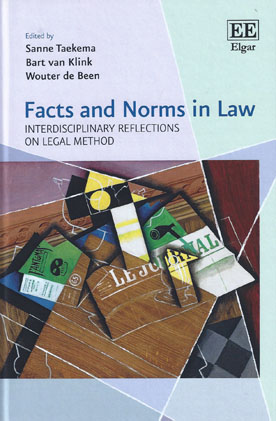
What role does empirical data play in law? How can we draw normative conclusions from empirical legal research? New insights in philosophy, the social sciences and the humanities have forced the relationship between facts and norms on to the agenda.
This book presents an innovative set of perspectives on the relationship between descriptive and normative elements in legal inquiry and practice. The contributors provide critical insights from a range of different disciplinary traditions and theoretical positions. They discuss topics such as the epistemic dependence of judicial decision-makers, legal doctrine as a non-normative discipline, systems-theory critique and law, and exploring the boundaries of law.
This book will benefit legal academics and graduate students looking to explore issues of methodology. It will also be of great interest to researchers in law and related topics interested in discussions of multidisciplinary and interdisciplinary research.